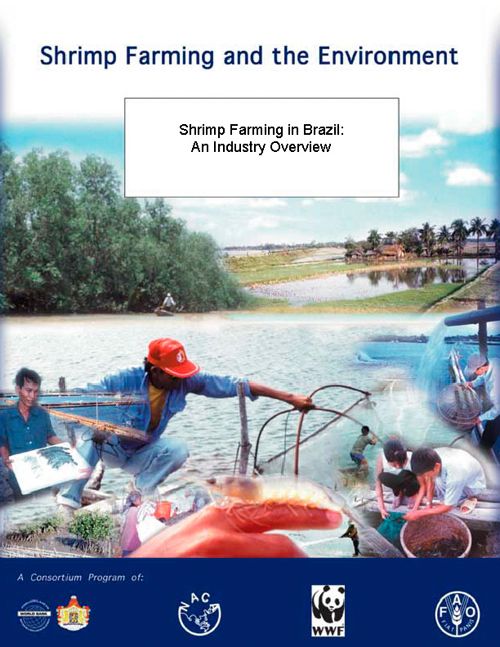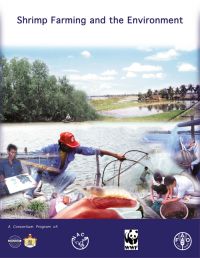Shrimp farming in Brazil: An industry overview
31 May 2005 | Patricia Mole and Jaime Bunge | 1009 Downloads | .pdf | 651.12 KB | Better management practices, Livelihoods, gender and social issues, Shrimp, Environment and Sustainability
The purpose of this study is to assess the development of the shrimp farming industry in Brazil, identifying past obstacles and key incentives for its expansion. The shrimp industry has taken longer to develop in Brazil than in other countries. Despite favourable conditions, it is only recently that successful efforts are consolidating. This report analyses the main factors that have inhibited the development of the industry and describes the sector’s current characteristics.
The shrimp farming industry is developing rapidly today. The stability of the Brazilian economy since 1994, together with the establishment of commercial shrimp hatcheries and aquafeed companies from Taiwan and the US, has provided further incentives for new investments in the sector. Most farms have implemented semi-intensive methods with P. vannamei and P. subtilis and adopted innovative management techniques.
At the moment, there is an absolute absence of any scientific research from Brazilian governmental bodies concerning PL production in hatcheries or raising shrimp in ponds. All the progress made to date has come from producers’ own on-site research or the expertise of international consultants. The members of the producers’ association (ABCC) agreed to pay a “research tax” levied on the feed sold to farmers. These private funds support research projects proposed by ABCC’s members that have industrywide relevance. It is odd that on the one hand the public sector in Brazil is highly effective in taxing all kinds of economic activities, and on the other hand incapable of building a public research infrastructure that would strengthen the industry.
One issue to be resolved is the use of marine land as collateral for credit, since most farms are situated on marine land. Normally the actual land where a shrimp farm is built represents the highest-value component of the farm. Banks or other lenders will demand additional collateral if the owners lack the land’s title, since they consider “occupancy of marine land” not equivalent to having a definitive title to the real estate. It would greatly enhance the borrowing capacity of shrimp farmers if the federal government can resolve this issue.
Copyright, all rights reserved.

